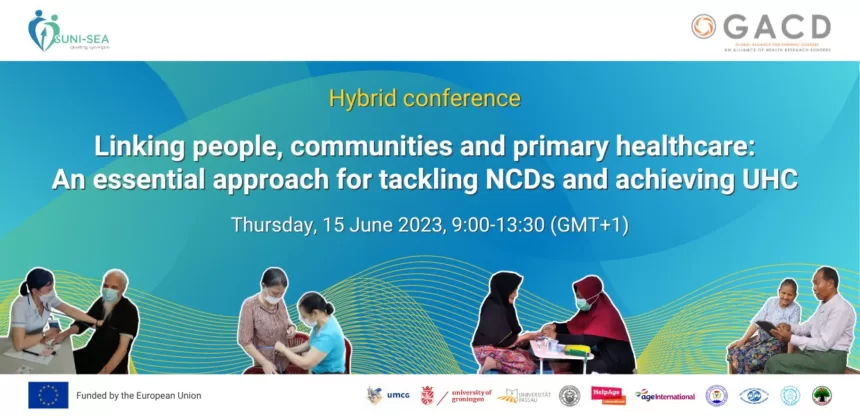Linking people, communities and primary healthcare: An essential approach for tackling NCDs and achieving UHC
This is a hybrid conference on incorporating evidence from implementation research in Indonesia, Myanmar and Vietnam into global health policy discourse.
A hybrid conference on incorporating evidence from implementation research in Indonesia, Myanmar and Vietnam into global health policy discourse was held on 15 June 2023.
The four-hour conference brought together representatives from academia, international non-governmental organizations (INGOs), UN agencies, think tanks, policymakers, and older individuals. The importance of communities in the context of primary healthcare, the crucial role of health volunteers, financing, political will, in achieving universal health coverage was discussed.
The insights gained from the SUNI-SEA project underscore the importance of prioritising policies and investments in non-communicable diseases (NCDs) and healthcare systems. This involves directing resources towards enhancing and fortifying services at the primary healthcare level while also empowering individuals and communities to actively participate in decision-making processes. By doing so, we can promote a shift of power towards the people and communities affected, ultimately leading to improved health outcomes.
Resources:
Speakers include:
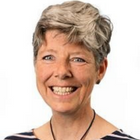 Alison joined Age International as CEO in August 2022. In this role she is also part of Age UK’s senior
Alison joined Age International as CEO in August 2022. In this role she is also part of Age UK’s senior
leadership team.
Alison brings over 25 years’ experience in international development. She was previously Managing Director of Sense International, working for and with people with disabilities. Before that she held senior roles at the International Planned Parenthood Federation, UNICEF UK, Bond and CAFOD. Her work on human rights has seen her travel extensively.
Alison is a member of the BBC Charity Appeals Advisory Committee, and the Boards of the Disasters Emergency Committee, International Disability and Development Coalition and the Fairtrade Foundation.
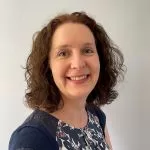 Margaret Bee is responsible for enhancing the GACD’s impact and fostering policy engagement. Previously she worked as a Health Adviser for the NGO Concern Worldwide, supporting primary healthcare programmes across Africa and Asia. She has lived in northern Uganda where she worked for the NGO Medair, in close partnership with the Ministry of Health, to set up a Community Health Worker programme. As Study Coordinator at University College London Institute for Global Health she worked with research partners in sub-Saharan Africa on a behaviour change research study.
Margaret Bee is responsible for enhancing the GACD’s impact and fostering policy engagement. Previously she worked as a Health Adviser for the NGO Concern Worldwide, supporting primary healthcare programmes across Africa and Asia. She has lived in northern Uganda where she worked for the NGO Medair, in close partnership with the Ministry of Health, to set up a Community Health Worker programme. As Study Coordinator at University College London Institute for Global Health she worked with research partners in sub-Saharan Africa on a behaviour change research study.
Margaret has an MSc in Public Health (Health Promotion stream) from the London School of Hygiene and Tropical Medicine and an undergraduate degree in Physiological Sciences from the University of Oxford. She is passionate about improving health of the world’s most vulnerable communities.
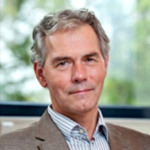 Jaap is a medical doctor specialised in public health and health management. He works in education and research in the university and in international health and development. He has experience in the Netherlands, in Central and Eastern Europe and in middle- and low-income countries all over the world.
Jaap is a medical doctor specialised in public health and health management. He works in education and research in the university and in international health and development. He has experience in the Netherlands, in Central and Eastern Europe and in middle- and low-income countries all over the world. Dr Tran became the Director of the Vietnam Health Strategy and Policy Institute in 2013. She has been responsible for a wide variety of tasks, which include: conducting research to provide evidence and technical consultation for health policymaking in Vietnam, participating in the regulation, formulation and assessing the impacts of health policy implementation. She is a member of several national committees on health policy development in Vietnam and she has worked extensively with policymakers to make the most efficient use of evidence in policymaking.
Dr Tran became the Director of the Vietnam Health Strategy and Policy Institute in 2013. She has been responsible for a wide variety of tasks, which include: conducting research to provide evidence and technical consultation for health policymaking in Vietnam, participating in the regulation, formulation and assessing the impacts of health policy implementation. She is a member of several national committees on health policy development in Vietnam and she has worked extensively with policymakers to make the most efficient use of evidence in policymaking.
She graduated from Hanoi Medical School in 1990 and obtained her Master Degree in Public Health at Karolinska Institute, Sweden and her Ph.D. degree in public health at the National Institute of Hygiene and Epidemiology, part of her Ph.D. training program was at the School of Population Health, University of Queensland, Australia.
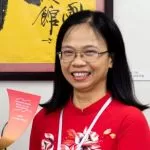 Thuy has more than years working in the development area and the majority of that devoted to the work in the area of ageing. She is one of the founders of community based, appropriate, comprehensive and affordable model in Vietnam, so called Intergenerational Self-Help Club (ISHC), which promotes healthy and active ageing in Vietnam, using community driven development approach. From an international funded project model, the ISHC has now become the national model, which has been and will be replicated widely by the government in collaboration with the Association of the Elderly.
Thuy has more than years working in the development area and the majority of that devoted to the work in the area of ageing. She is one of the founders of community based, appropriate, comprehensive and affordable model in Vietnam, so called Intergenerational Self-Help Club (ISHC), which promotes healthy and active ageing in Vietnam, using community driven development approach. From an international funded project model, the ISHC has now become the national model, which has been and will be replicated widely by the government in collaboration with the Association of the Elderly.
Currently, Thuy and her team in Vietnam provides technical support for both national and local partners in replicating the model. Ms. Thuy was also a member of the consultant teams to develop Vietnam 2016 Joint Action Health Review report on healthy ageing. She is also the member of Ministry of Health’s Technical Working Group to develop the national proposal on health care for older people to be submitted to the Prime Minister in 2020.
She holds a master degree of development management by Asian Institute of Management (AIM).
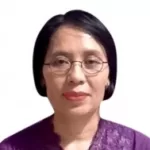 Dr Maria had been working in the position of Director General of Public Health, Ministry of Health of Indonesia since March 2022. She began her career in a non-profit organisation, Médecins Sans Frontières Belgium, and prior to joining the Ministry of Health, Dr Maria spent nearly 8 years as Health Specialist with UNICEF working in various health relate issues.
Dr Maria had been working in the position of Director General of Public Health, Ministry of Health of Indonesia since March 2022. She began her career in a non-profit organisation, Médecins Sans Frontières Belgium, and prior to joining the Ministry of Health, Dr Maria spent nearly 8 years as Health Specialist with UNICEF working in various health relate issues.
She is a medical doctor graduated from UGM (Universitas Gadjah Mada) and had a Master of Science in Public Health specialised in Epidemiology.
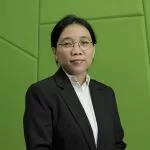 Prof. Ari Probandari is a medical doctor with specific training and expertise in public health. Her research focuses on implementation research of disease control program, program evaluation and health systems. Dr. Ari currently serves as Head of the Public Health Doctoral Study Program, Faculty of Medicine, Sebelas Maret University. She is experienced as a WHO technical assistance consultant for the development of a national action plan for the control of sexually transmitted diseases 2015-2019, the Indonesian Ministry of Health for the development of a national action plan for Tuberculosis control, and has been a member of the Tuberculosis Expert Committee since 2011.
Prof. Ari Probandari is a medical doctor with specific training and expertise in public health. Her research focuses on implementation research of disease control program, program evaluation and health systems. Dr. Ari currently serves as Head of the Public Health Doctoral Study Program, Faculty of Medicine, Sebelas Maret University. She is experienced as a WHO technical assistance consultant for the development of a national action plan for the control of sexually transmitted diseases 2015-2019, the Indonesian Ministry of Health for the development of a national action plan for Tuberculosis control, and has been a member of the Tuberculosis Expert Committee since 2011.
She is a doctor and holds a Master of Science in Public Health and PhD from Umea University Sweden. She is also a researcher at the Center for Tropical Medicine, Faculty of Medicine, Public Health and Nursing, Gadjah Mada University Yogyakarta.
 Guy Fone is a medical doctor from Chile with 25 years’ experience and achievements in the public, private and global health sectors. He joined WHO in 2015 as Advisor and currently hold the position of Head of the Secretariat of the Global Coordination Mechanism on Noncommunicable Diseases (GCM/NCD), at WHO Headquater. The main purpose of his current work is to support WHO’s priority of responding to country needs by catalyzing multistakeholder engagement and cross-sectoral collaboration at the local, national, regional and global levels in support of the NCD and NCD-related SDGs, ultimately translated into meaningful and effective commitments, contributions and collaborations from relevant partners.
Guy Fone is a medical doctor from Chile with 25 years’ experience and achievements in the public, private and global health sectors. He joined WHO in 2015 as Advisor and currently hold the position of Head of the Secretariat of the Global Coordination Mechanism on Noncommunicable Diseases (GCM/NCD), at WHO Headquater. The main purpose of his current work is to support WHO’s priority of responding to country needs by catalyzing multistakeholder engagement and cross-sectoral collaboration at the local, national, regional and global levels in support of the NCD and NCD-related SDGs, ultimately translated into meaningful and effective commitments, contributions and collaborations from relevant partners.
He has a solid clinical background in the public and private sectors where I have directed a successful private practice during 20 years and, in parallel, he also held the position of Chief Medical Director for an Emergency Unit in a public health facility in a LMIC context.
 Dr Jeanet lead the Applied Health Research Unit of the department of Health Sciences, University Medical Center Groningen (UMCG). She conducted implementation – and action research on different topics in health science and lead projects on development and implementation of interventions. She leads the Work Package 2 focusing on scaling-up of NCDs intervention. Another research project was on development of a care path for patients with Long-COVID and another one is about family involvement in the care for people with dementia. A few of her studies are about Autism Spectrum Disorder (ASD) and participation. A specific research topic is the link between sensory processing problems and participation.
Dr Jeanet lead the Applied Health Research Unit of the department of Health Sciences, University Medical Center Groningen (UMCG). She conducted implementation – and action research on different topics in health science and lead projects on development and implementation of interventions. She leads the Work Package 2 focusing on scaling-up of NCDs intervention. Another research project was on development of a care path for patients with Long-COVID and another one is about family involvement in the care for people with dementia. A few of her studies are about Autism Spectrum Disorder (ASD) and participation. A specific research topic is the link between sensory processing problems and participation.
Dr Jeanet background is Physiotherapy and Movement Sciences with special interest for psychosomatic symptoms and theory driven program evaluation in participatory action research projects.
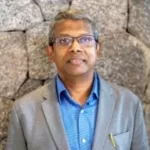 Professor Anil Krishna, Ph.D, is the Director of the Centre for Leadership in Global Health Equity at the University of Global Health Equity (UGHE). He is a Professor of Global Health and has served as Professor and Dean of School of Public Health, SRM University in India. Before joining UGHE he worked with HelpAge International leading the public health research and interventions on noncommunicable diseases in Southeast Asia.
Professor Anil Krishna, Ph.D, is the Director of the Centre for Leadership in Global Health Equity at the University of Global Health Equity (UGHE). He is a Professor of Global Health and has served as Professor and Dean of School of Public Health, SRM University in India. Before joining UGHE he worked with HelpAge International leading the public health research and interventions on noncommunicable diseases in Southeast Asia.
His research experiences include implementation science in primary health care settings focuses on infectious diseases and noncommunicable disease prevention and management. He also led polio eradication initiatives and national family planning programs in India in addition to provide technical leadership in conducting management development programs in public health in emergencies, behaviour change communication, health policy development and results-based management in Asia.
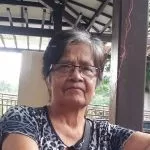 Bonifacia Basconcillo, or Nanay Paz, is a Board of Trustees and Chairperson of the Confederation of Older Persons’ Associations of the Philippines (COPAP)
Bonifacia Basconcillo, or Nanay Paz, is a Board of Trustees and Chairperson of the Confederation of Older Persons’ Associations of the Philippines (COPAP)
Nanay Paz is a passionate champion dedicated to enhancing the well-being of older people. She actively advocates for the promotion of older people’s well-being. Nanay Paz collaborates closely with the Coalition of Services of the Elderly (COSE) to spearhead campaigns focused on universal health coverage and various health-related concerns. Moreover, she has been instrumental in advocating for Philippines universal social pension, as well as other bills aimed at addressing the needs of older persons.
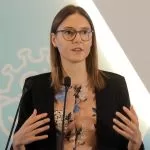 Kira Koch is currently works in the Special Programme on Primary Health Care. As part of the governance team, she focuses on health system strengthening, performance assessments and participatory governance to support countries on their path towards universal health coverage. She is a co-editor of the WHO handbook on social participation for universal health coverage, which aims to provide practical guidance to policymakers on how to meaningfully engage with the population, communities and civil society in health policy and decision-making processes. Prior to that, she was part of the WHO Health System Governance and Financing Department, and worked as a researcher at the University of Bayreuth in Germany where she also obtained her M.Sc. Degree in Health Economics.
Kira Koch is currently works in the Special Programme on Primary Health Care. As part of the governance team, she focuses on health system strengthening, performance assessments and participatory governance to support countries on their path towards universal health coverage. She is a co-editor of the WHO handbook on social participation for universal health coverage, which aims to provide practical guidance to policymakers on how to meaningfully engage with the population, communities and civil society in health policy and decision-making processes. Prior to that, she was part of the WHO Health System Governance and Financing Department, and worked as a researcher at the University of Bayreuth in Germany where she also obtained her M.Sc. Degree in Health Economics.
 Charlotte joined the NCD Alliance in February 2023 and is responsible for Capacity Development’s flagship program, the Our Views, Our Voices initiative which seeks to put people first in the NCD response and leave no one behind, enabling people living with NCDs to be leaders and active players in the response to these diseases and conditions.
Charlotte joined the NCD Alliance in February 2023 and is responsible for Capacity Development’s flagship program, the Our Views, Our Voices initiative which seeks to put people first in the NCD response and leave no one behind, enabling people living with NCDs to be leaders and active players in the response to these diseases and conditions.
Prior to this Charlotte worked in Cambodia for GIZ where she provided technical and capacity development support to the Cambodian Ministry of Health’s Noncommunicable Diseases; as a consultant for the Health Finance Institute as a Cambodian Country Ambassador; and for the Cambodian NCD Alliance which she co-founded in 2018 calling for accelerated action on NCDs. Before relocating to Cambodia Charlotte worked for HelpAge International from 2012-2016 supporting health policy and program development in low- and middle-income countries.
Charlotte holds a master’s degree in public health in Developing Countries from the London School of Hygiene and Tropical Medicine and a bachelor’s degree in international relations. She has also studied maternal health and nutrition-related chronic disease.
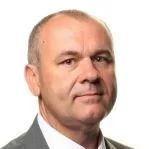 Grzegorz Owsianik, PhD, is the Team Leader responsible for non-communicable and infectious diseases policy programme oversight and planning in the unit “Combatting Diseases” in the Directorate PEOPLE of the Directorate-General for Research and Innovation at the European Commission. His experience covers program and policy development, research funding and project management. Before joining the Commission, he worked as a research assistant in the Faculty of Medicine at the University in Leuven, Belgium (KU Leuven).
Grzegorz Owsianik, PhD, is the Team Leader responsible for non-communicable and infectious diseases policy programme oversight and planning in the unit “Combatting Diseases” in the Directorate PEOPLE of the Directorate-General for Research and Innovation at the European Commission. His experience covers program and policy development, research funding and project management. Before joining the Commission, he worked as a research assistant in the Faculty of Medicine at the University in Leuven, Belgium (KU Leuven).
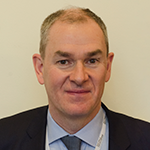 Robert Yates is a political health economist specializing in universal health coverage (UHC) and progressive health financing. He is executive director of the Centre For Universal Health at Chatham House. He is also an honorary associate professor at the London School of Hygiene and Tropical Medicine, and a long-term consultant to The Elders on its health programme. His principal area of expertise is in the political economy of UHC, with a focus on advising political leaders and governments on how to plan, finance and implement national UHC reforms. He has previously worked as a senior health economist with the UK’s Department for International Development (DFID) and the World Health Organization, advising numerous governments in Asia, Africa and Europe on health financing policy and health systems reforms. He holds a BA degree in natural sciences and economics from the University of Cambridge and an MBA from the University of Leeds.
Robert Yates is a political health economist specializing in universal health coverage (UHC) and progressive health financing. He is executive director of the Centre For Universal Health at Chatham House. He is also an honorary associate professor at the London School of Hygiene and Tropical Medicine, and a long-term consultant to The Elders on its health programme. His principal area of expertise is in the political economy of UHC, with a focus on advising political leaders and governments on how to plan, finance and implement national UHC reforms. He has previously worked as a senior health economist with the UK’s Department for International Development (DFID) and the World Health Organization, advising numerous governments in Asia, Africa and Europe on health financing policy and health systems reforms. He holds a BA degree in natural sciences and economics from the University of Cambridge and an MBA from the University of Leeds.
 Srinivas Tata has been serving as the Director of the Social Development Division of ESCAP since June 2019. He has 16 years of experience of working with the United Nations. He is a physician by qualification with experience in finance and taxation, social policy, public health and programme management.
Srinivas Tata has been serving as the Director of the Social Development Division of ESCAP since June 2019. He has 16 years of experience of working with the United Nations. He is a physician by qualification with experience in finance and taxation, social policy, public health and programme management.
He served in wide range of positions in the United Nations. Prior to joining the UN, among others, He was posted as Director (Public Health) in the Ministry of Health in the Government of India, dealing with financing and implementation of large health programmes, implementation of trade and health policies supporting affordable access to medicines. He also worked as in the Ministry of Finance in Government of India dealing with indirect taxation policy and tariffs on a range of commodities.




